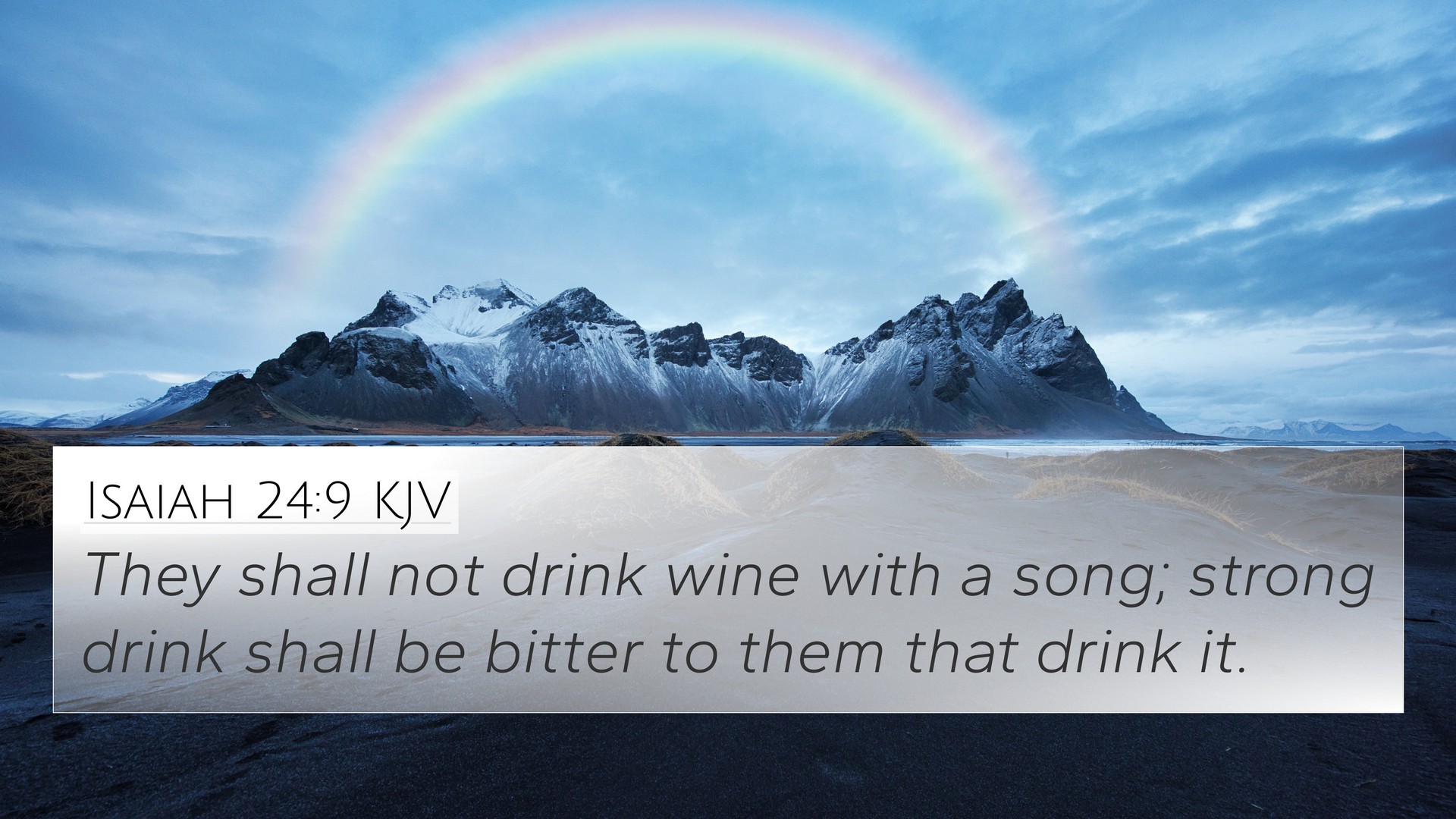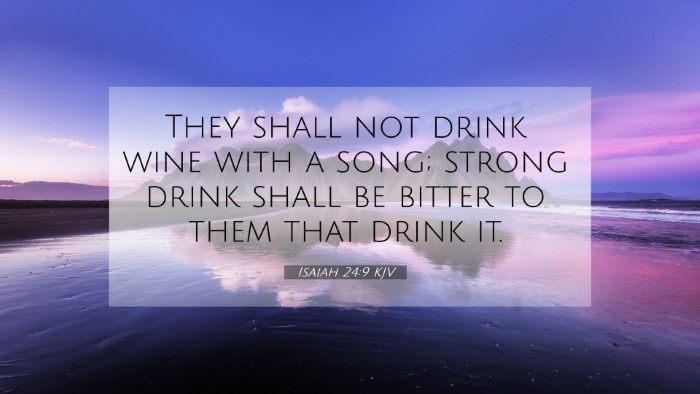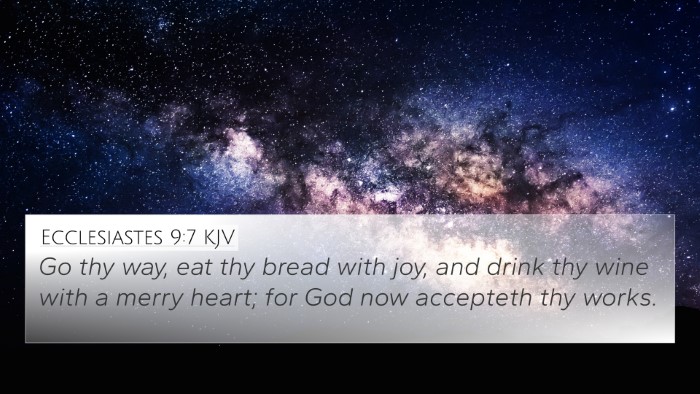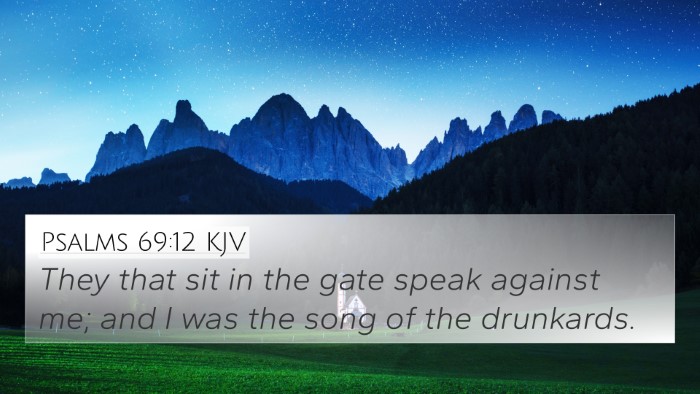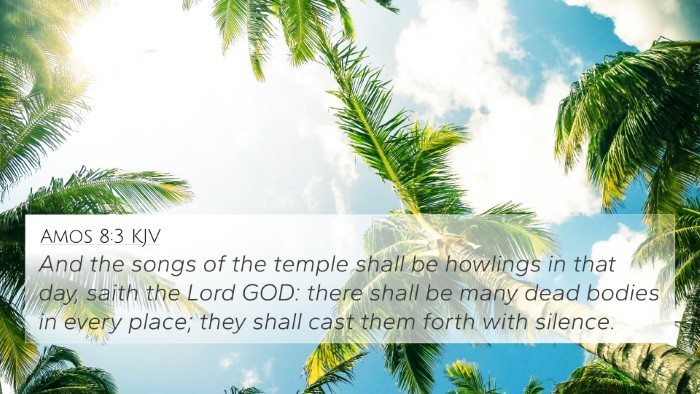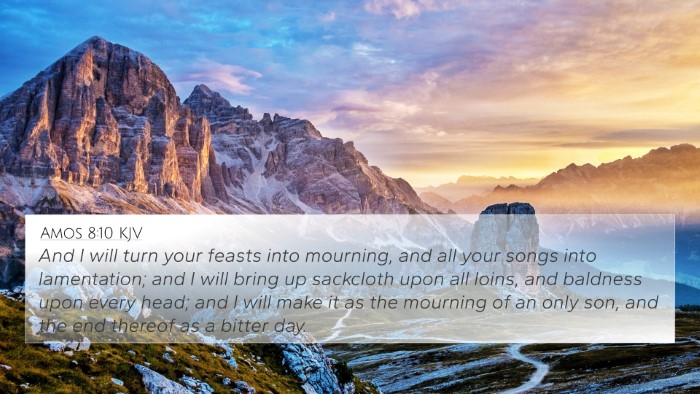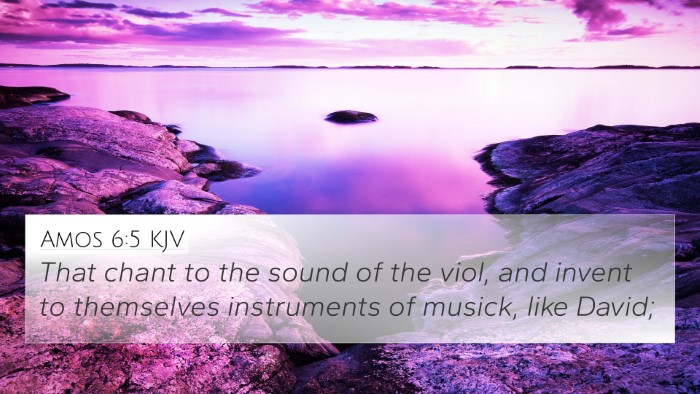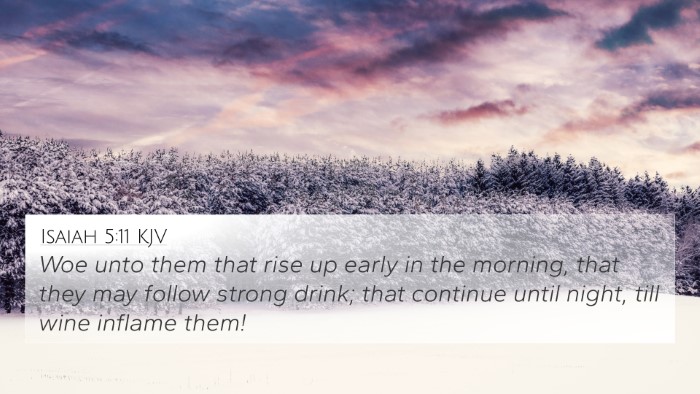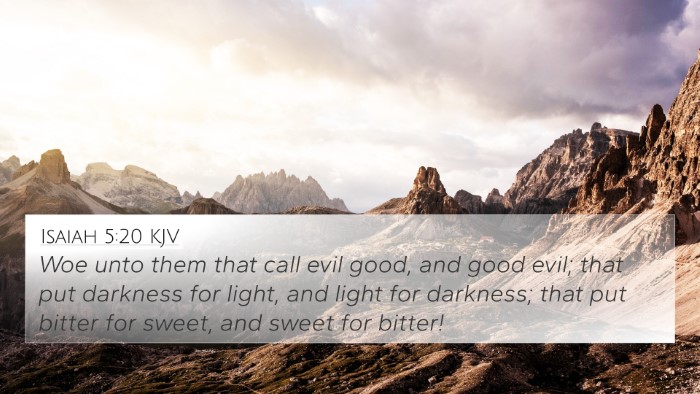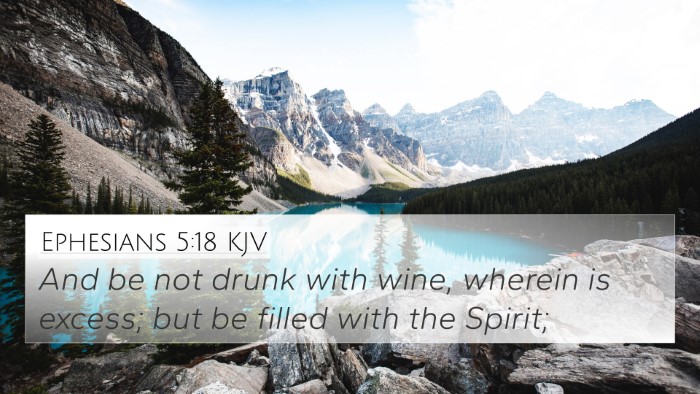Understanding Isaiah 24:9
Isaiah 24:9 states, “They shall not drink wine with a song; strong drink shall be bitter to them that drink it.” This passage comes from a section in Isaiah that discusses the desolation of the earth due to the consequences of human sin and rebellion against God.
Summary of Insights from Public Domain Commentaries
This verse captures the profound despair of humanity in the face of divine judgment. Here is a combined analysis based on insights from Matthew Henry, Albert Barnes, and Adam Clarke:
- Matthew Henry: He emphasizes that the joy typically found in drinking wine is replaced with bitterness during times of judgment, illustrating the seriousness of God's displeasure. This verse is seen as a reflection of a greater spiritual reality where earthly delights are stripped away, leaving a stark awareness of sin.
- Albert Barnes: Barnes notes that this passage depicts the inhabitants of the earth mourning the loss of the joy that wine usually brings. He highlights that the absence of song signifies a deep sense of sorrow and loss, a result of the calamity that has befallen them. The mention of "strong drink" being bitter indicates how the habitual comforts can turn on the soul during judgment.
- Adam Clarke: Clarke supports the notion of judgment, explaining that the consumption of wine, often a symbol of celebration, becomes bitter due to the overwhelming circumstances around them. He connects this to the larger narrative of the consequences of a sinful lifestyle—where even the simplest pleasures are turned into sources of pain.
Thematic Connections
This verse highlights several key themes within the theology of Isaiah and the broader biblical narrative:
- The Nature of Divine Judgment: As indicated, the loss of joy and the bitterness of strong drink is a metaphor for the consequences of sin.
- The Folly of Worldly Pleasures: This illustrates how earthly joys can become meaningless during distress, serving as a stark reminder of spiritual priorities.
- The Call to Repentance: The deprivation of joy can be a catalyst for individuals to reflect on their lives and seek reconciliation with God.
Cross-References to Isaiah 24:9
To deepen the understanding of this verse, here are cross-references that relate to its themes:
- Isaiah 5:11-12: Highlights the folly of those who pursue wine and entertainment instead of God.
- Isaiah 25:6-8: Speaks of a future time when He will wipe away tears and defeat death—a contrast to the sorrow of Isaiah 24:9.
- Lamentations 5:15: Reflects a similar theme of joy being taken away amidst suffering.
- Jeremiah 48:33: Discusses the situation where the joy of a nation is taken away, akin to what Isaiah portrays.
- Revelation 14:10: Warns of the consequences of worshipping the beast, resulting in bitterness in the cup of God's wrath.
- Proverbs 23:30-32: Explains the woes associated with excessive drinking, aligning with the theme of bitterness.
- Ezekiel 27:30: Describes lamentation over loss, similar emotional tones found in Isaiah 24.
- Psalm 102:9: A lament that expresses sorrow, paralleling the feelings in Isaiah 24:9.
- Zephaniah 1:12: Speaks of God's judgment leading to despair—resonating with the message of Isaiah.
Conclusion
In summary, Isaiah 24:9 portrays the stark reality of a world under divine judgment where traditional sources of joy are stripped away. By using tools for Bible cross-referencing, we can explore connections between this verse and others, enriching our understanding of the biblical themes of judgment and repentance. Through an examination of related scripture, we gain insights that reflect the wider narrative of hope amidst despair.
Exploring Cross-References Further
To enhance one's study of the scriptures, utilizing a bible cross-reference guide or tools such as a bible concordance can provide further depth on how to identify connections between biblical texts. This practice not only aids in personal understanding but is invaluable for anyone preparing sermons or engaging in comprehensive Bible cross-reference materials.
